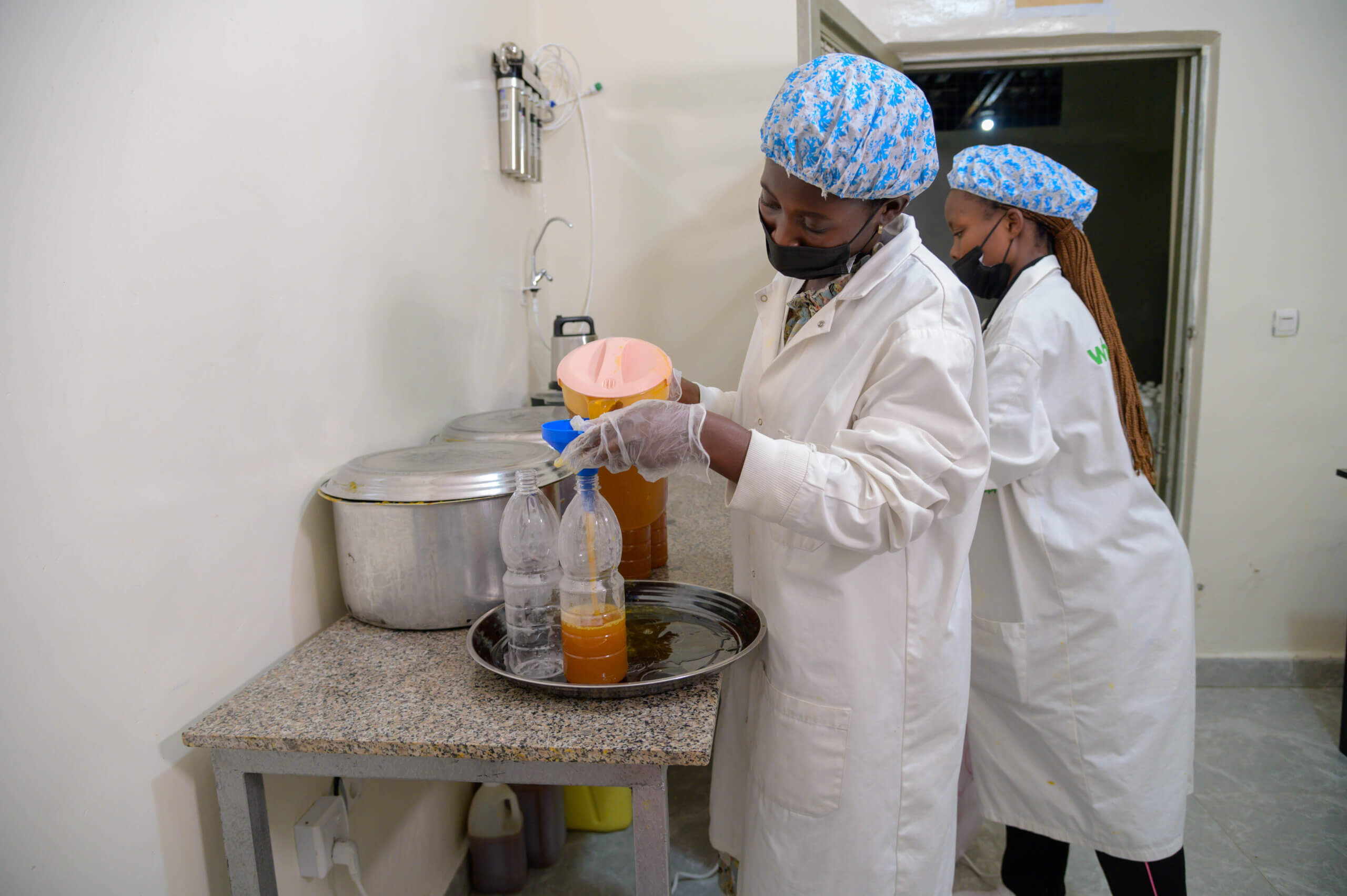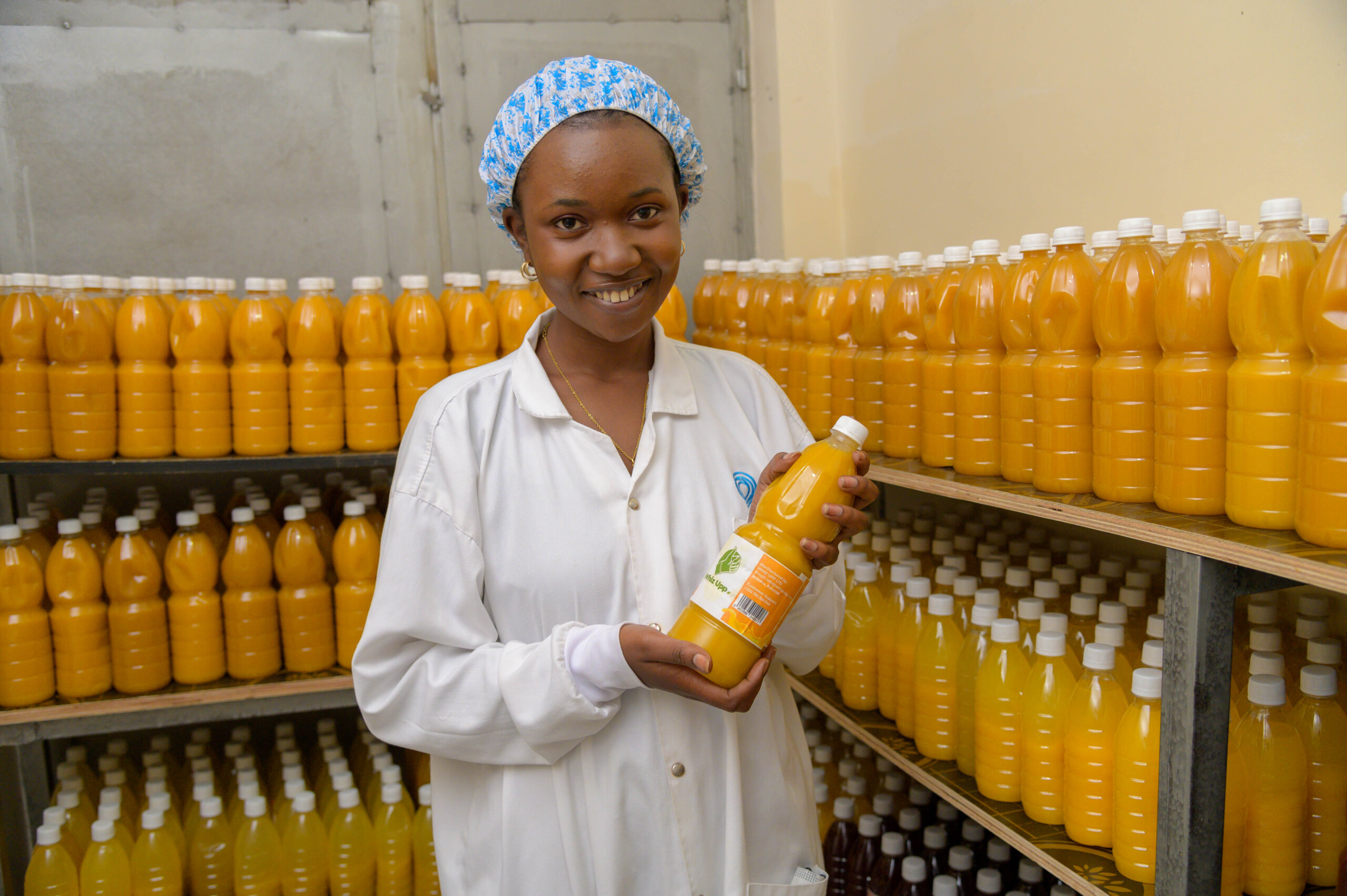Hawa Chloe Niyigena, Whiz Upp Founder, turned a small fruit-processing business into a cross-border success.
Cross-border trade in Africa is rarely about just having a good product. For most small businesses, the real hurdle is compliance, meeting multiple national and regional standards that determine whether, for example, a fruit puree clears customs or gets turned away.
Ms. Hawa Chloe Niyigena, founder of Whiz Upp, a fruits and vegetables processing firm based in Western Rwanda, knows this only too well. For years, her business remained small, boxed in by limited knowledge of quality standards and little access to broader markets, especially across borders. That changed when she joined a partnership programme between TradeMark Africa (TMA) and the Rwanda Standards Board (RSB).

Workers at Whiz Upp package fresh juices for local and cross-border markets (2025).
Through the support, she was trained on food safety requirements, certification processes, and business management, including bookkeeping and saving strategies. After participation in trade exhibitions in Kigali and Democratic Republic of Congo, Whiz Upp began expanding its market reach.
The impact was immediate: weekly sales jumped fivefold, from $160 to $800. She now sells across borders and employs 11 people, up from four. “Before joining the programme, I had very few customers. But, after attending trade fairs and exhibitions, I met more buyers,” Ms. Niyigena said.
Whiz Upp is one of the 13 Rwandan firms that began exporting under the Export Capability programme; in total, 40 firms were supported to enhance their export readiness. According to David Butera, Programme Manager for TMA in Rwanda, “By the end of the programme in 2022/2023, the 13 businesses had generated nearly $4 million in export revenues. Additionally, $5 million was mobilised in financial support through equity grants and debt financing.”
The next step for Ms. Niyigena is to hire more young people from her community, as youth unemployment remains high; partner with more local farmers to secure quality raw materials; and tap into international markets.
Ms. Niyigena’s experience of breaking into new markets then hitting a production wall reveals a broader truth: that training alone is not enough. Africa’s food processors need long-term investment in infrastructure, market intelligence, and production capacity through adoption of modern technologies in order to grow. Training and trade expos are just the starting point.















